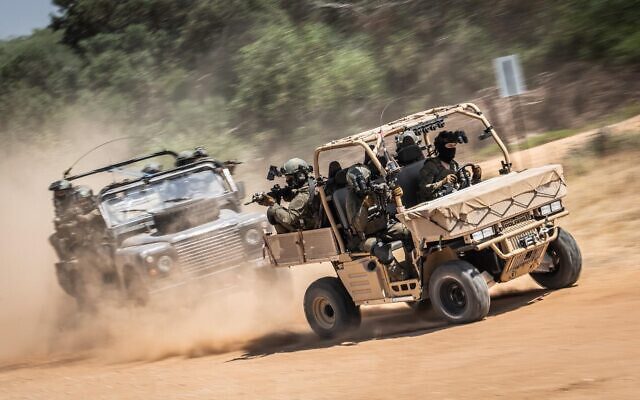The recent escalation of violence between Israel and Hamas in Gaza has had repercussions in Africa, where Israel has been providing military training to the Democratic Republic of Congo (DRC) to help fight an armed rebellion in the east of the country.
According to sources, Israel has repatriated dozens of instructors employed by private military contractors in DR Congo, following the mass mobilisation of Israeli reservists after the Hamas attack on 7 October. The attack, which involved rockets and drones, killed 13 Israelis and wounded more than 200.
The Israeli instructors were part of a security cooperation agreement signed in 2019 between Israel and the DRC, under which Israel offered to train and equip the Congolese army to combat the Allied Democratic Forces (ADF), a rebel group linked to the Islamic State.
The ADF has been active in the mineral-rich eastern provinces of North Kivu and Ituri, where it has killed hundreds of civilians and displaced millions in recent years. The UN peacekeeping mission in DR Congo, known as MONUSCO, has been unable to contain the violence, despite having more than 16,000 troops in the country.
The withdrawal of the Israeli instructors could have a negative impact on the DRC’s efforts to restore stability and security in the east, where humanitarian needs are acute and often neglected by the international community.
According to the UN Office for the Coordination of Humanitarian Affairs (OCHA), insecurity in eastern DRC has fuelled a long-standing humanitarian crisis, with an estimated 6.3 million people internally displaced and more than 26 million people facing food insecurity. The situation has been further aggravated by inflation, epidemics and natural disasters, such as last month’s floods in Kahele territory in South Kivu, which killed more than 470 people and left thousands missing.
The Israeli-DRC security cooperation was also seen as a way to strengthen the bilateral ties between the two countries, which have been improving since President Felix Tshisekedi took office in 2019. Tshisekedi, who is the current chairperson of the African Union, has expressed his support for Israel’s right to exist and defend itself, and has sought to increase trade and investment with the Jewish state.
In September, Prime Minister Benjamin Netanyahu met with Tshisekedi on the sidelines of the UN General Assembly in New York City, where they discussed ways to enhance cooperation in agriculture, trade, security and cyber. Netanyahu also invited Tshisekedi to visit Israel, which would be the first official visit by a Congolese head of state since 1982.
Last month, it was revealed that the Democratic Republic of the Congo (DRC) has adopted the large-scale use of Israeli-made 5.56 x 45mm EMTAN MZ-4P assault rifles for use by its special forces. This was displayed in a recent public parade carried out by the military and security forces in the capital Kinshasa.
The MZ-4P is a piston-operated assault rifle that is compatible with NATO ammunition and all other variations of 5.56 x 45mm ammunition and magazines.
However, the relationship between Israel and the DRC has not been without controversy. In 2019, it was revealed that Israeli private intelligence agency Black Cube was hired by former President Joseph Kabila to spy on his opponents and influence the outcome of the presidential election. Black Cube, which is mainly composed of former members of Israel’s military and intelligence services, allegedly set up a covert operation in a Kinshasa hotel, where they intercepted phone calls, hacked emails and bribed officials.
The scandal, dubbed Operation Coltan, raised questions about Israel’s role and interests in the DRC, which is home to vast reserves of minerals such as cobalt, copper and coltan, which are essential for the production of smartphones, electric vehicles and other high-tech devices. Israel is one of the world’s leading importers of coltan, which is also used in the manufacture of military equipment.
The repatriation of the Israeli instructors from the DRC could be a temporary measure, as Israel hopes to end the conflict with Hamas through diplomatic efforts and international mediation. However, the situation remains volatile and unpredictable, and could have lasting consequences for the security and stability of both regions.
